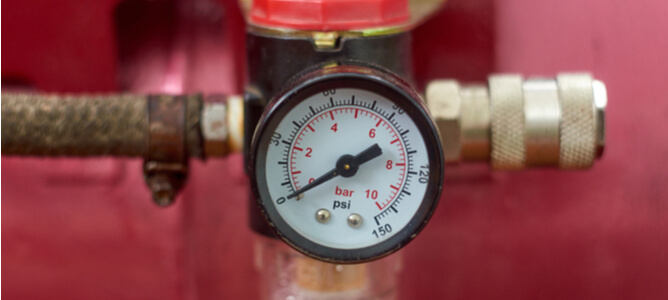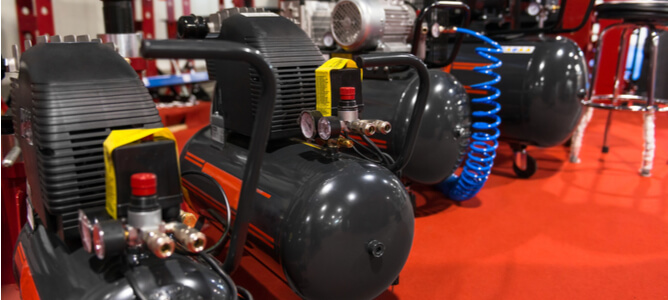
The Importance of Oil-Water Separators for Air Compressors
Air compression systems play a critical role in many industrial production cycles. While they are highly beneficial to manufacturing, poorly maintained air compressors could be damaged by contaminants’ build-up during production activities. Oil-water separators will effectively optimize compressed air systems while maintaining compliance with environmental industrial waste disposal regulations.
What is an Oil-Water Separator?
An oil-water separator is a device used to eliminate waste oils generated during industrial production activities. Sometimes referred to as a condensate separator, this device aids in the separation of oils and other lubricants from condensed water formed during industrial-scale air compression processes. This lets operators drain oil-free water, allowing them to stay compliant with municipal wastewater regulations.
How Does an Oil-Water Separator Work?
The setup for an air compressor oil-water separator is quite simple, requiring just a single manifold connection between it and sources of condensate. Water generated from air compression activities typically collect in the following components:
- Aftercoolers
- Air drying systems
- Receiver tanks
- Air filters
- Condensation traps
Once the water has been channeled from various origins to the separator, the filtration process can then commence.
Components of an Oil-Water Separator
The main parts of an industrial oil-water separation unit are:
- Connection channel
- Cyclonic depressurization chamber
- Filter cartridges
- Activated carbon system
- Exit drain unit
Oil-Water Separation Process for Air Compressors
Oil-water separators used in industrial air compression systems typically combine adsorption and absorption processes to eliminate oils from wastewater. The main steps in the filtration process are outlined below:
- The condensed water is conveyed through the channel, connecting the air compressor and the separator to the cyclonic depressurization chamber where any accompanying air is vented. This primes the oil-water mix and allows for a more efficient filtration process.
- The liquid mix is allowed to drain under gravity onto filter cartridges made of polypropylene fibers. This constitutes the oil absorbent phase of separation, as most of the oil is retained within the fibers of the filter.
- The largely oil-free water is then exposed to activated carbon material which eliminates any residual oil by adsorption. The activated carbon filter is composed of micropores with oleophilic walls that retain oils and lubricants that pass through them.
- Once the water has exited the carbon filter, it is ready for safe discharge or reuses in appropriate processes.
Benefits of an Oil-Water Separation System for Air Compressors
Subjecting condensate generated from industrial manufacturing activities has many upsides both from legal, environmental, and economic perspectives. The key benefits of incorporating oil-water filter separators in air compression systems are outlined below.
Compliance with Environmental Protection Regulations
Oils and wastewater can have significant negative impacts on the environment, with soil and water body contamination being major concerns. The use of efficient oil-water filtration systems allows air compressor operators to prevent environmental contamination. It also allows them to adhere to the environmental protection regulations in the areas in which their industries are sited.
Oil and Water Recycling
From an economic standpoint, resource conservation and reuse save businesses high operational costs. Recycling water and oils generated during manufacturing activities cuts expenditures on energy and utilities.
For example, oils generated from food material processing industries can be repurposed as biofuels and raw materials in tire manufacturing. In addition, recycled wastewater can be used to cool and clean industrial systems.
Extended Equipment Lifespan
The unchecked build-up of moisture and other contaminants within air compressor systems can cause damage to sensitive parts resulting in costly but avoidable equipment downtime. Investing in oil-water separators for air compression systems prevents frequent equipment failures and prolongs their useful lifespans.
Oil-Water Separator Regulations
In the US, the Environmental Protection Agency (EPA) regulates the disposal of wastewater and oils generated from industrial processes. The agency mandates that industrially generated condensates either undergo proper treatment to eliminate oil contaminants or properly dispose of them in line with laid down regulations.
While condensate from industrial sources is majorly regulated under the 1970 Clean Water Act, the relevant sections of the Code of Federal Regulations also guide industrial operators.
Maintenance Tips for Oil-Water Separators
Maintaining oil-water separators is a relatively simple task that can be scheduled for three different levels of care:
- Weekly to monthly checks are done on the nature of the water exiting the separation unit. Very turbid water indicates that filter cartridge replacements are in order.
- Monthly to once quarterly checks assess sludge levels within the separation tank.
- Quarterly to annual maintenance involves the replacement of oil filter cartridges and activated carbon units.
NiGen Provides Training & Field Services for Process Equipment
NiGen is a world-class firm providing excellent air compressor solutions to its clientele. We aim to optimize your unique processes by providing high-quality training and field services for process equipment.
To learn more about our products and services, please contact us today!


